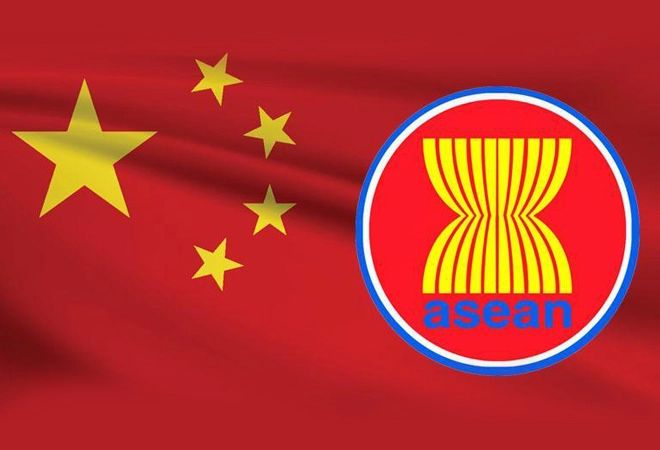In view of what’s happening in the South China Sea, Myanmar, Taiwan, Diplomatic Boycott of Beijing Winter Olympics over Human Rights abuses and ASEAN’s silence on China’s role in these

Beijing Winter Olympics 2022 has turned into a political mess of global powers. The U.S. is leading an international diplomatic boycott as a sign of protest against state-sponsored “crimes of humanity” and other human rights abuses. Many countries Canada, the UK, Australia and a clutch of smaller countries in the Western Bloc have sided with the USA by pointing out that one reason was the Covid scare. France and Italy were among the bigger western countries that will send both athletes and government representatives for the event. “Sports is a world apart that needs to be protected from political interference. If not, things can get out of control and it could end up killing all of the competitions,” said the French Sports Minister Jean-Michel Blanquer. Germany has left the question open so far.
In an official statement last week, IOC said, “The presence of government officials and diplomats is a purely political decision for each government, which the IOC in its political neutrality fully respects. At the same time, this announcement also makes clear that the Olympic Games and the participation of the athletes are beyond politics, and we welcome this”. India had announced its support along with that of Moscow at the virtual meeting of the Russia-India-China Foreign Ministers.
In a later development, imposed sanctions on dozens of people and entities in China, Myanmar, while blacklisting a Chinese artificial intelligence company for human rights abuses marking International Human Rights Day. China has been facing this global alienation amid the South China Sea crisis, origin of COVID19, its ‘debt trap’ economics, and historically prevalent human rights abuse. With the rise of new global economic order, this alienation and power politics has been traversing into many sectors.
In early 2017, China appeared to be on a roll. Its economy was beating estimates. President Xi Jinping was implementing the country’s Belt and Road infrastructure initiative and was on the cusp of opening China’s first overseas military base in Djibouti. Most importantly, Xi seemed poised to take advantage of President Donald Trump’s determination to pick fights with U.S. allies and international institutions. Post 2019, the global order took the cue and it has been ever changing power dynamics since then. COVID19 in late 2019 and early 2020 triggered this further.
Amid the growing significance of the Indo-Pacific region in the world’s geostrategic affairs, Association of Southeast Asian Nations (ASEAN), comprising 10 member states in Southeast Asia, which promotes intergovernmental cooperation and facilitates economic, political, security, military, educational, and sociocultural integration between its members and other countries in Asia has a significant role to play in the region.
In 1996, China became a full dialogue partner of the regional body. As the financial crisis hit Asia in 1997, China decided not to devalue its international currency, the Renminbi (RMB) and also to financially support the most crisis-ridden countries like Thailand. In 2003, China acceded to the Treaty of Amity and Cooperation in Southeast Asia, leading the way among all of ASEAN’s dialogue partners. The relationship between them was upgraded to “strategic partnership for peace and prosperity”.
In 2011, the ASEAN-China Centre (ACC) was established in Beijing. In 2012, China established its Permanent Mission in ASEAN. In response to US trade policies under former President Donald Trump and especially in the first year of the Covid-19 pandemic, China looked to other regions, most notably to Southeast Asia, with which to reinforce engagement in trade. Indeed, ASEAN has replaced the US as the second largest trading partner of China after the EU.
But, China’s assertion of sovereignty over the South China Sea has set it against ASEAN member nations such as Vietnam and the Philippines, while Brunei, Taiwan, and Malaysia also lay claim to parts of the South China Sea. With this development, China wants to make sure to have a favourable neighbourhood and sought mutual cooperation on the sidelines of the China-ASEAN Summit held virtually in November 2021.
ASEAN becoming a lackey of China?

The ASEAN Way refers to a methodology or approach to solving issues that respect Southeast Asia’s cultural norms. ASEAN Way’s emphasis on consultation, consensus, and non-interference forces the organisation to adopt only those policies which satisfy the lowest common denominator. Decision-making by consensus requires members to see eye-to-eye before ASEAN can move forward on an issue. Members may not have a common conception of the meaning of the ASEAN Way. Myanmar, Cambodia, and Laos emphasise non-interference while older member countries focus on cooperation and coordination. These differences hinder efforts to find common solutions to particular issues, but also make it difficult to determine when collective action is appropriate in a given situation.
China has warned countries would “pay a price for their wrong moves” for the decision to boycott Beijing Winter Olympics 2022. Some European countries and neighbouring countries including ASEAN have decided not to risk their trade relations with China and have stayed away from the ‘Diplomatic Boycott’. Amid the global politics over the Indo-Pacific region, ASEAN member-states felt compelled to take a position by adopting the ‘ASEAN Outlook on the Indo-Pacific’ in June 2019. The statement insists that ASEAN does not want to surrender its ‘central role’ in the region; rather than being swallowed up by either of them in the strategic environment, it would pursue the course of an ‘honest broker’ between the ‘competing interests’.
Thus, whatever be their bilateral relations with either of the competing powers, ASEAN as an entity will uphold ‘rules-based regional architecture’ and work for ‘cooperation’, ‘peace, stability and prosperity’. It will be interesting to see how the China- ASEAN relation will evolve in the future.
(Author is a student of law and a communication professional. Her interests lie in governance, public policy & law and is part of foundational batch of Indian School of Public Policy, New Delhi)
